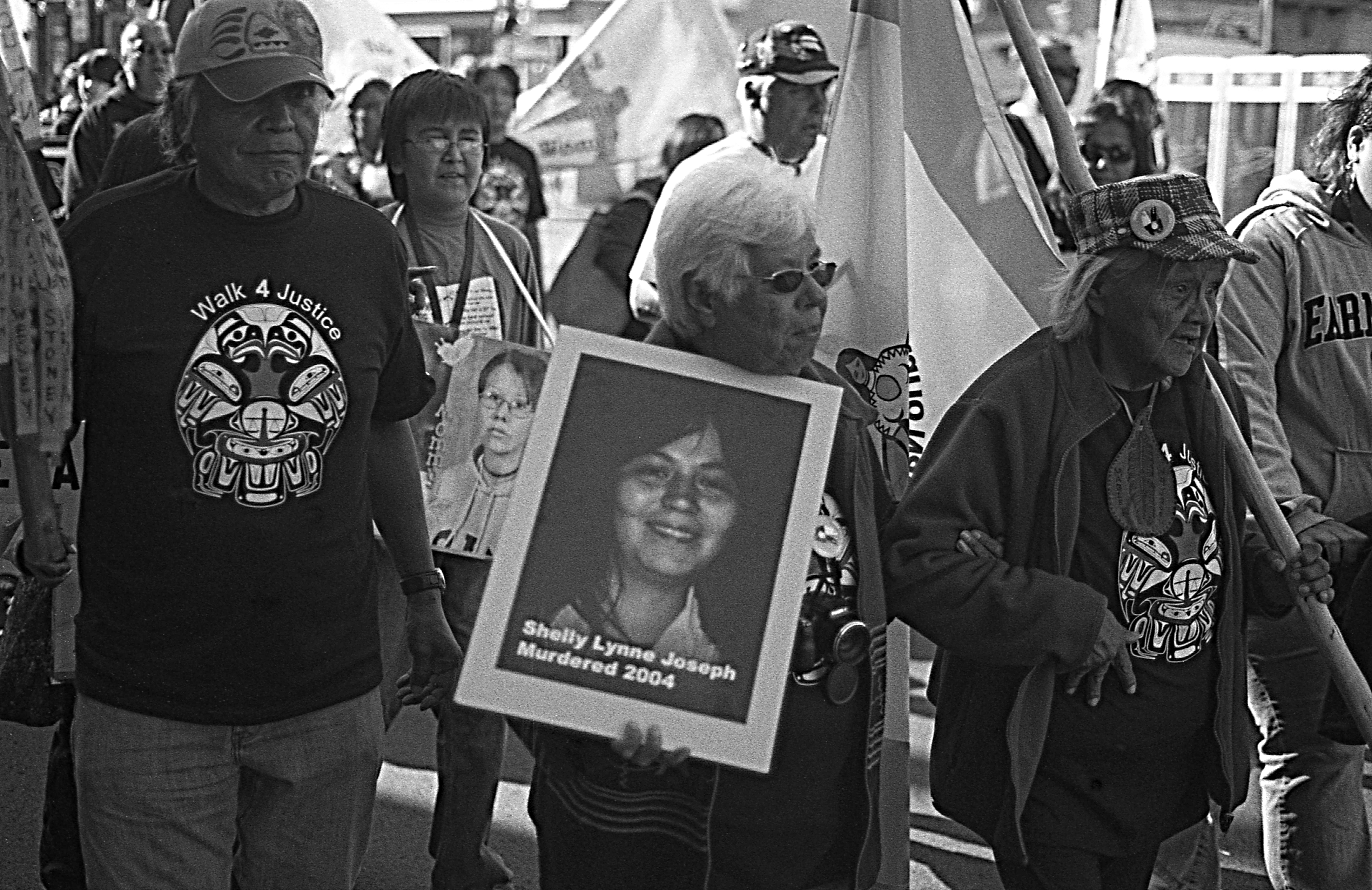ON THE ROAD AGAIN
ON THE ROAD AGAIN

On June 21, 2011, a group of dedicated women, men and children stepped out into the streets of Vancouver and began a cross-country walk that will span over 4,000 km and take nearly three months to complete. This summer’s trek from Vancouver, Coast Salish territory, to Ottawa, Algonquin territory, marks the fourth annual Walk4Justice.
“Our purpose is to raise awareness about the missing and murdered women across Canada,” says Walk4Justice co-founder Gladys Radek. “And we’re going to be asking Stephen Harper to either step up or step down.”
The walk arrives in Ottawa on Sept. 19 as a part of the citywide 30 Days of Justice Campaign, organized by the Families of Sisters in Spirit and their allies. The 30 Days of Justice Campaign, which runs from Sept. 5 to Oct. 4, seeks to raise awareness on issues of gendered and racialized violence. This year’s events include panel discussions, community gatherings, a social justice fair, a film night, and the annual Take Back the Night march.
Walk4Justice is bringing several demands forward. “We’re asking for a national public inquiry into the deaths of so many women,” Radek told the Leveller. “Another thing we’re pushing for is our own Aboriginal Task Forces to investigate these cases because we’re tired of the cops investigating themselves. They’re killing our people.” Radek says they’re also asking for the creation of a health and wellness centre for the families of missing and murdered women, especially children.
Walk4Justice was co-founded in 2008 by Gladys Radek and Bernie Williams to raise awareness around the violence and injustice that disproportionately threatens the lives and well-being of Indigenous women in Canada. While Indigenous women make up only 3 percent of the national population, they are five times more likely to die as a result of violence than non-Native women.
Radek says, “When we walked the first time in Vancouver in 2008 there was 11 women that had gone missing or gone murdered, and this year there’s been 36 now. So there’s a problem here. Systemic racism and discrimination is one of the biggest.”
Radek and Williams began the initiative as a response to personal losses of loved ones to violence. On Sept. 21, 2005, Radek’s niece, Tamara Lynn Chipman, disappeared near Prince Rupert, BC, along Highway 16, now widely known as Canada’s “Highway of Tears.”
While searching for Chipman in Vancouver’s Downtown East Side (DTES), Radek met Williams, a front line worker and advocate for women living on the streets of one of Canada’s poorest postal codes. Williams had also suffered the loss of her own mother and two sisters as a result of violence in the DTES.
Together Williams and Radek began to document the number of missing or murdered women in Canada, speaking to family members across the country who have lost loved ones to violence.
“We’ll be providing a list of almost 4,200 names of missing and murdered women over the past few decades,” says Radek. The majority of these cases concern Indigenous women.
A similar database was also compiled through the Sisters in Spirit initiative, under the direction of the Native Women’s Association of Canada. It lists the names of nearly 600 Indigenous women who have gone missing or have been murdered across Canada.
This work has been carried out in spite of federal funding cuts to the Sisters in Spirit initiative by the Harper government in October 2010. The government has come under fire from equality-seeking women’s groups since first coming to office in 2006, when it closed 75 percent of Status of Women Canada offices.
Radek says that “all the women’s programs across the country are being cut.” She told the Leveller, “Right now we feel there is a war against women in this country.”
Further, in July 2011, Barry Penner, former attorney general of BC, refused to fund the legal counsel of 13 groups granted participation in the Missing Women Commission of Inquiry. Kent Roach of the University of Toronto’s Faculty of Law commented on the decision in a letter sent on Sept. 7 to BC interim Attorney General Shirley Bond: “The refusal of funding in this case is also especially egregious because the groups granted standing represent some of the most disadvantaged women in Canada, including Aboriginal women, women living in poverty, women with drug addictions, and women engaged in prostitution.”
The letter continues, “They are women who are regularly, and in the facts at issue in the inquiry, repeatedly, preyed upon, violated and murdered. To render them voiceless when it is their lives and safety which are the subject of the inquiry, is unprincipled, as well as legally unsound.”
This article first appeared in the Leveller Vol. 4, No. 1 (Sept./Oct. 2011) which can be read online at leveller.ca.

